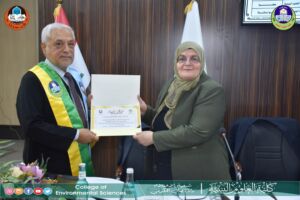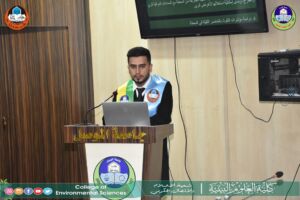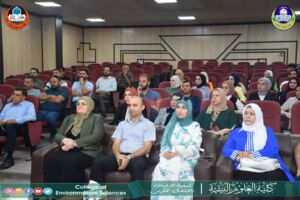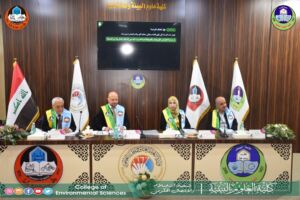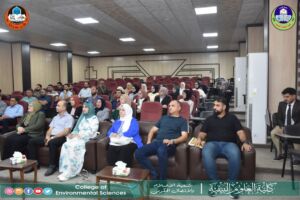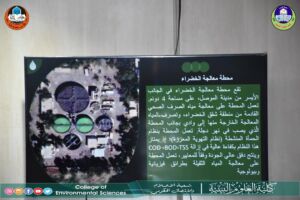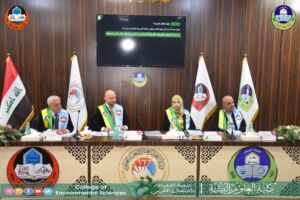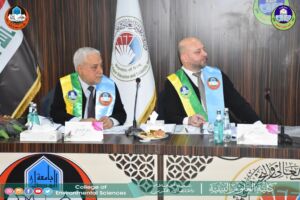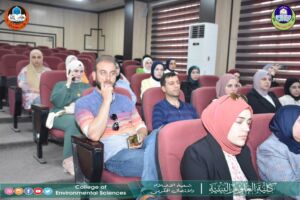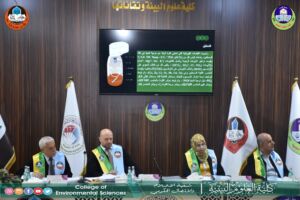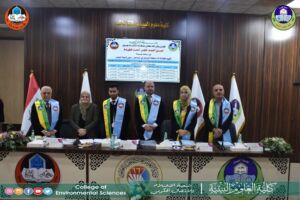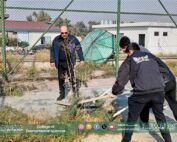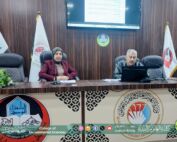22 July، 2024
Discussion of a master’s thesis in the College of Environmental Sciences on the efficiency of the performance of Yarmouk station in the city of Mosul..
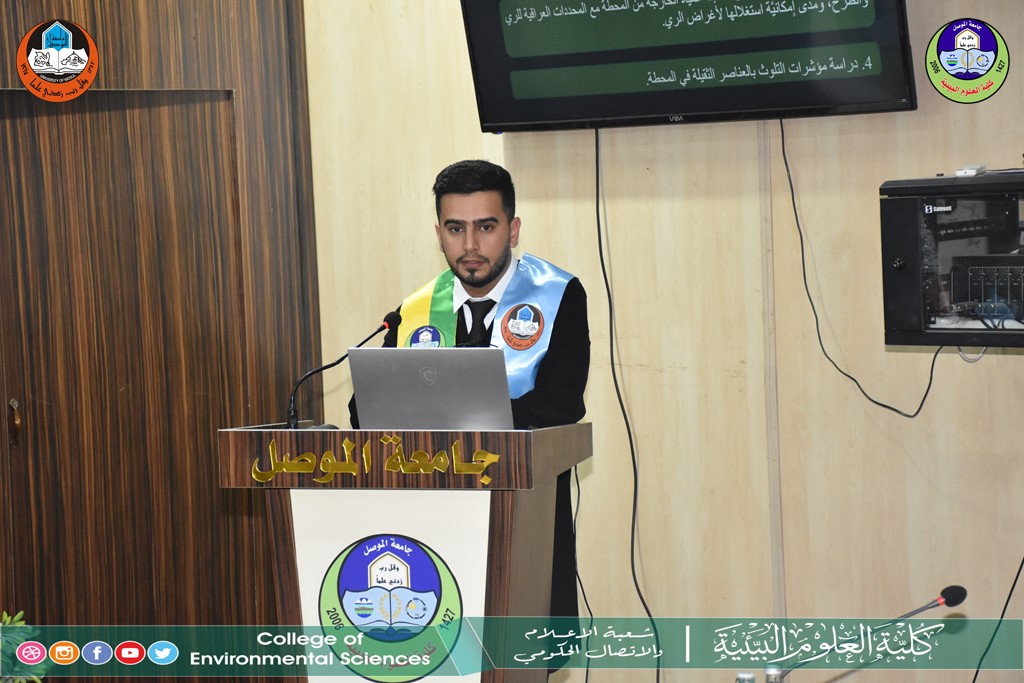
Under the patronage of the President of the University of Mosul, Professor Dr. Qusay Kamal Al-Din Al-Ahmadi, and in the presence of the Dean of the College of Environmental Sciences, Dr. Yusra Majeed Al-Shaker, the discussion of the master’s thesis of the student Hassan Ahmed Khader Ahmed took place this morning, Monday, July 22, 2024, on his thesis entitled
Evaluation of the efficiency of the performance of Yarmouk station on the right coast of the city of Mosul. The discussion committee was headed by Assistant Professor Dr. Mazen Nizar Fadl / College of Environmental Sciences and the membership of Assistant Professor Dr. Riyadh Abdullah Fathi / Al-Hadba University and Lecturer Dr. Ansam Ahmed Saadoun / College of Environmental Sciences and the membership and supervision of Assistant Professor Dr. Ayad Fadil Qasim / College of Environmental Sciences.
The study included collecting 40 samples from the Yarmouk and Al-Khadhra sewage treatment plants in the city of Mosul to evaluate the efficiency of the two stations and the extent to which the water discharged from the two stations conforms to the Iraqi specifications for discharge and irrigation.
The study aimed to study the physical and chemical properties and heavy elements of the wastewater entering and exiting the station, and to study the efficiency of the station and the extent to which the water exiting the station conforms to the Iraqi determinants for irrigation and disposal, and the extent to which it can be exploited for irrigation purposes, in addition to studying the indicators of pollution with heavy elements in the station and comparing the efficiency of the Yarmouk treatment plant with the Al-Khadhra treatment plant.
The study recommended conducting a continuous evaluation of the treatment plants to determine the efficiency of the treatment and the extent to which the water exiting them conforms to the Iraqi determinants for disposal and irrigation, and conducting a study on the biological effects of the water exiting the station, in addition to using the water exiting the station for the purposes of irrigating the central islands in the city of Mosul after it is diluted with the drain water to ensure that no high loads of pollutants occur in the event of any malfunction in the treatment process.
Division of Media and Government Communication
College of Environmental Sciences
Monday 22 July 2024
